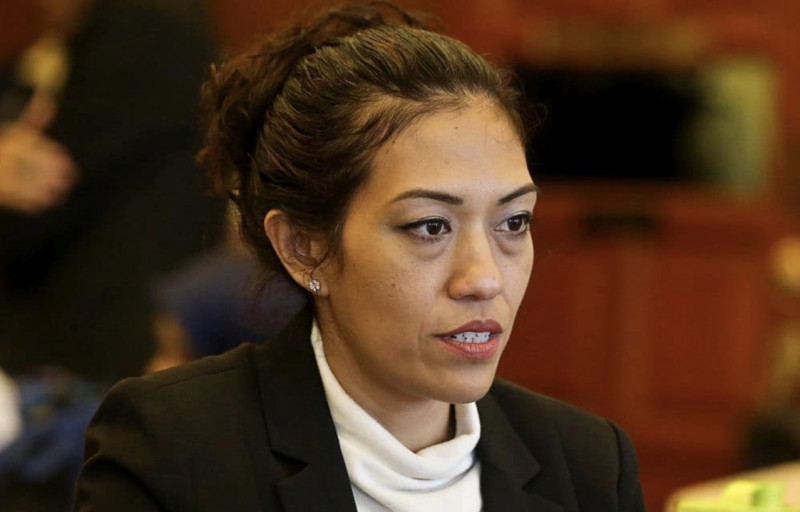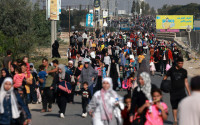I WISH to reiterate my support for the amendments to the Sexual Offences Against Children Act 2017 (SOAC, or Act 792) and agree that it is high time the Evidence of Child Witness Act 2007 (Act 676) is updated in line with current developments.
To put things in perspective, child abuse has become a serious problem in Malaysia. According to a report by the Social Welfare Department, there were 4,019 cases of child abuse in the country in 2019.
The Covid-19 pandemic also led to an increase in reported cases of child abuse, with some reports indicating a 30% increase in cases during the lockdown period. In 2021, around 6,144 cases of child abuse were reported and 274 occurred whilst under the “careful” eyes of nannies at day care centres.
Child sexual abuse is a violation of their rights and dignity, and can occur in different forms such as molestation, incest, rape, and exploitation. These abhorrent acts destroy the lives of children, leaving them scarred for life. I firmly believe that it is our collective responsibility to prevent and respond to such heinous acts, which are also more prevalent now with children’s accessibility to the internet.
We need to understand that the horrors that exist now have taken a different turn, as abuse happens frequently online and the challenges to protect our children remain an uphill battle for all. Internet usage in Malaysia is roughly at 99%, where apps like Facebook, TikTok and Instagram remain amongst the most popular. Social media chat services like WhatsApp and Telegram are also amongst the most commonly used.
In 2020, the Malaysian Communications and Multimedia Commission (MCMC) reported 20,989 cases of online child sexual abuse material recorded in the country, an increase of over 200% from the previous year.
MCMC also reported that in between January and May of 2020, there were over 5,000 reports of online sexual harassment, including child grooming. This was a significant increase from 2019, and it is believed that the actual number of cases may be much higher, as many cases go unreported.
Southeast Asia, including Malaysia, has been identified as a hotspot for child sexual exploitation on the dark web. According to a report by the United Nations Office on Drugs and Crime, the region has become a hub for child pornography production and distribution, with Thailand, the Philippines, and Indonesia being the most affected countries.
Some reports have indicated that Malaysia is becoming a hub for child pornography in the region. In 2019, Malaysian police arrested 26 people in connection with an international child pornography syndicate operating from Malaysia.
To add to this, Malaysia has also been identified as a transit point for child trafficking, with many victims being smuggled across the border from neighbouring countries.
However, it is difficult to obtain accurate statistics on the extent of child sexual exploitation on the dark web, as it is a highly secretive and encrypted space.
In the United States, law enforcement agencies and organisations such as the International Justice Mission are working to combat the issue by identifying and arresting offenders, providing support to victims, and raising awareness among the public about the dangers of the dark web.
Online and offline environments sometimes intersect in the continuum of abuse, where sexual exploitation and abuse takes place exclusively in the online environment. For example, an offender may use the online environment to connect with, convince and/or coerce a child to share self-generated sexual content, which may be later shared more broadly.
Furthermore, abuses that may happen offline are now facilitated by online digital technologies. For example, an offender may use the online environment to groom a child with the intention of later meeting face-to-face to engage in sexual abuse or exploitation.
In addition, some gross acts are committed offline and then moved online, where a child may be contacted and abused in person, but online tools may be used to communicate with and coerce the child to capture sexually explicit images or videos, and to potentially share the sexual content with others.
We understand the dire need of accountability and swift justice to protect our children from sexual abuse.
To combat this, the Malaysian government established a Cyber Crimes and Multimedia Investigation Division under the Commercial Crime Investigation Department within the Royal Malaysia Police, which is responsible for investigating and prosecuting online sexual offences, including child pornography, alongside the Crime Investigation Department’s D11 division, which is responsible for investigating and prosecuting offences relating to sexual crimes, women, and children.
The Malaysian government has also passed laws such as SOAC and the Child Act 2001 to protect children from online abuse and exploitation. However, we need to identify the barriers that exist and consider existing gaps in reporting.
Law enforcers must be proactive and work together with the judicial body in identifying cases of online child sexual exploitation and abuse (Ocsea), gathering evidence, tracking and catching perpetrators, and helping victims pursue legal avenues. Most importantly, there must be a cohesive effort to improve existing support systems for affected children and parents, including legal aid and psychological support.
Again, I support the timely amendments to SOAC to not only redefine outdated terms, but also introduce the new offence of live-streaming sex, as well as to enable the courts to order sexual offenders to pay compensation to child victims for counselling and medical costs, amongst others.
However, there is still a need for more coordinated and comprehensive efforts to combat and eradicate Ocsea and child pornography in Malaysia, including education and awareness campaigns for parents, children, and the general public on how to stay safe online and how to identify potential risks.
For this, I call upon all relevant ministries, including the Prime Minister’s Department (Law and Institutional Reform); Women, Family and Community Development Ministry; Communications and Digital Ministry; Education Ministry; and the Health Ministry, along with law enforcers and government agencies, to band together with the private sector and the rest of the people to design a safer environment for our children, online and offline.
Let Malaysia be known globally as a country that is united, rich and diverse in arts, culture and traditions rather than as a “hub” for Ocsea!
Syerleena Abdul Rashid is the MP for Bukit Bendera and assemblyman for Seri Delima




















